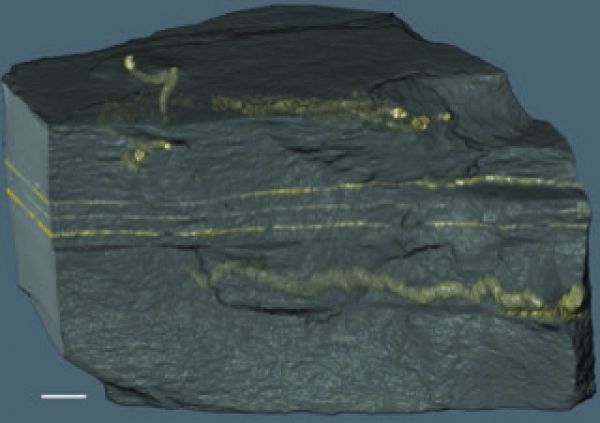Newly discovered fossilized tracks suggest multicellular life could be 1.5 billion years older than previously thought, according to a new international study that included scientists at the University of Alberta.
“The preservation of fossilized tracks, or trace fossils, suggests that multicellular organisms that could move around to reach food resources may already have existed 2.1 billion years ago—more than 1.5 billion years older than previously thought,” explained study co-author Kurt Konhauser, professor in the U of A's Department of Earth and Atmospheric Sciences.
The fossils, measuring up to six millimetres across and 170 millimetres long, were found in a formation of black shale in Gabon, Africa. According to the researchers, they are likely the result of mucus trails left by ancient multicellular organisms, similar to groups of amoeba-like cells found in modern slime moulds, as they searched for food.
Konhauser noted the discovery has sparked some controversy among scientists.
Continue reading at University of Alberta.
Image via Abder El Albani - University of Poitiers.


